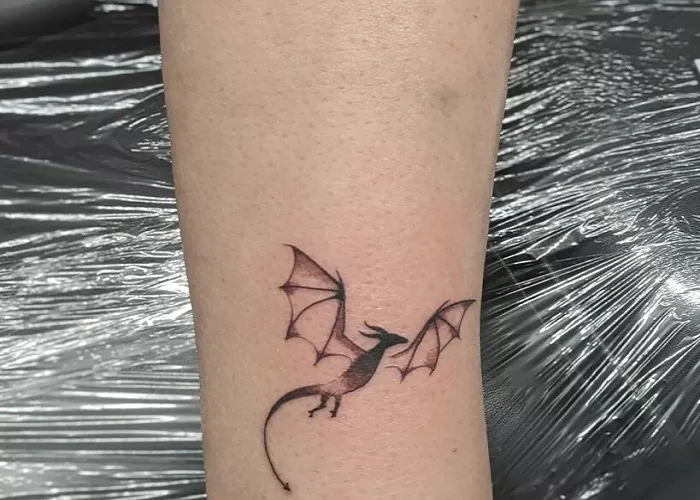A devastating tragedy has unfolded in the Kashmir Valley after 14-year-old Nouman Sofi, a Class 10 student at the Kashmir Harvard Educational Institute, died by suicide earlier this week. His death has triggered widespread outrage, with the boy’s family accusing the school of harassment and public shaming over tattoo marks on his body — a controversy now prompting calls for sweeping reforms in how schools handle student mental health and personal expression.
According to family members, Nouman was found dead at his home just hours after an alleged confrontation at his school. They say he had already faced previous disciplinary action over his tattoos, including a temporary suspension that was only lifted after the family submitted affidavits and letters of recommendation.
But on the day of the incident, the family claims Nouman was once again summoned to the principal’s office, barred from attending his regular classes, and subjected to public humiliation in front of school staff and even his own sister, who was also called in.
“The tattoos were already being removed through laser treatment,” Nouman’s sister said. “Still, he was shamed, cornered, and made to feel like a criminal.”
Accusations of Verbal Abuse and Character Assassination
In addition to the ongoing tattoo-related dispute, Nouman’s family says he was falsely accused of attacking another student during a recent school picnic — a claim they say was refuted by the other student involved, who allegedly described it as a casual, non-threatening interaction. Despite this, a teacher reportedly went so far as to publicly call Nouman a “murderer”, a word that continues to haunt the grieving family.
“They labelled him, humiliated him, and treated him as if he were dangerous. He was just 14. He didn’t deserve this,” said Nouman’s father, who is now calling for a full investigation into the incident.
The family claims to have audio recordings of conversations between staff and students, allegedly containing demeaning and accusatory language. While they have stated they are not seeking financial compensation, they are demanding accountability and justice for what they view as an avoidable tragedy.
Political & Community Leaders Respond
The incident has sparked a wave of support and concern across Kashmir. Local MLA from Habba Kadal, Advocate Shamim Firdous, visited the family to offer condolences and has since vowed to escalate the matter with the Education Minister and relevant authorities.
“Educational institutions are not just about academics — they must also safeguard the emotional and psychological well-being of their students,” Firdous said. “What happened here cannot go unexamined. The system must change.”
Firdous called for greater sensitivity and emotional intelligence among teaching staff, and demanded that structured mental health frameworks be made a mandatory part of school infrastructure across Jammu & Kashmir.
School Denies Allegations, Expresses Grief
In response to the growing criticism, a senior official from Kashmir Harvard Educational Institute issued a public statement denying the allegations. The school described the claims as “baseless and deeply hurtful”, while also expressing sorrow over the death of their student.
“He was our child, too. We are grieving with the family,” said the official. “There was no intent to harass him. We follow a system of open dialogue with students and parents — not punishment.”
The school confirmed that the issue of tattoos had been discussed, but insisted it was done with discretion and decorum. “Tattoos are not a crime,” the statement read, “but as an institution, we have a code of conduct that includes guidelines for appearance and discipline.”
National Debate Over Discipline vs. Dignity
Nouman Sofi’s death has reignited a broader conversation about the role of schools in navigating adolescent identity, personal expression, and behavioral discipline. Critics argue that rigid institutional cultures — especially in conservative or high-pressure environments — often ignore the psychological toll of public shaming and labeling on young minds.
Mental health advocates say the incident illustrates a deep disconnect between policy and empathy, especially in a region like Kashmir, where children and teens already face heightened emotional and political stress.
“What this child needed was guidance, support, and understanding,” said a local psychiatrist. “What he got was blame, isolation, and humiliation. This wasn’t a disciplinary failure — it was a human failure.”
Call for Systemic Change
As investigations continue, educators, parents, and mental health professionals across the country are calling for systemic reforms that include:
Mandatory mental health counselors in all schools.
Clear anti-bullying and anti-shaming protocols.
Training for teachers in adolescent psychology and conflict resolution.
A review of institutional codes of conduct to ensure they are not misused as tools for discrimination or humiliation.
Nouman’s story — marked by a desire to express himself and a system that allegedly failed to protect him — has become a symbol of the urgent need to redefine how Indian schools handle discipline, mental health, and the delicate dignity of growing up.
Related topics:

